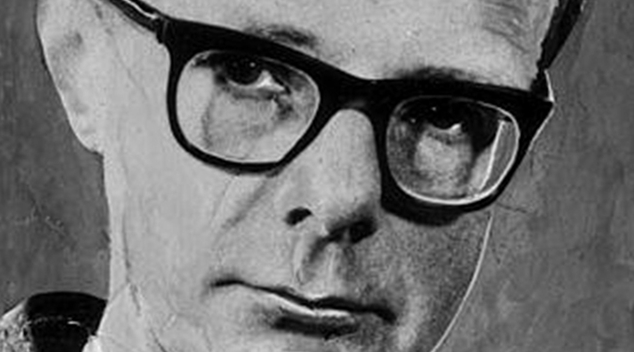
Fifty years after the death of Dr George Duncan in Adelaide there are fresh calls to exhume his body and launch a new investigation into his murder.
Warning: This story contains information about a hate crime, homophobia and suicide.
The Adelaide Advertiser has reported that the boyfriend of one of the original witness to the death has shared that his late partner had lied in his previous testimony, potentially omitting crucial evidence because he feared the police.
Dr George Duncan was a law academic at Adelaide University, in 1972 he was attacked and thrown into the River Torrens, where he drowned.
The public outrage over his death lead to the push for the decriminalisation of homosexuality, and in 1975 South Australia became the first state or territory in Australia to change the laws.
It has been suggested that the people who attacked Dr Duncan were police officers. Duncan was 41 years old at the time of his death and he’d only taken up his post at the university a few months earlier.
The south banks of the river that winds its way though the city were a well known meeting place for homosexual people. On the evening of the 10th of May, Dr Duncan and another man, Roger James, were attacked by a gang of men, both were thrown into the river.
James suffered a broken ankle, but Duncan who was unable to swim drowned. James pulled himself from the river, and with the aid of a passing motorist was taken to hospital.
Shortly afterwards Dr Duncan’s body was discovered. Shockingly his after his body was retrieved from the water, it was put back in the river, so TV cameras could capture his body being pulled out.
In the days that followed rumours circulated that members of the Police Vice Squad were responsible for the attack. At the inquest into the death two police officers refused to give evidence, while the other had resigned from the police force.
In 1985 a former Vice Squad member claimed there had been a cover-up to protect three members of the Vice Squad. The trio were charged over the death, but only two stood trial in 1998, both were acquitted. In 1990 police announced they saw no prospect of bringing anyone to justice over the death.
Dr Duncan’s death is seen as a significant event that triggered public debate over gay rights in Australia. Within three years South Australia had changed its laws, but it would not be until 1997 that all Australian states changed their laws.
The fiftieth anniversary of the crime has sparked renewed interest in the case, a play abut the case was performed at this year’s Adelaide Festival and a new book examining the murder has also recently been released.
Speaking to the Adelaide Advertiser, Ivan Felisatti said his partner Julian Clarke who witnessed the attack had clearly heard Dr Duncan’s arms being broken before he was thrown into the river.
Clarke gave a statement to police in 1988 where he said he saw two men being thrown into the river by a group of men. Clarke said that the same men had punched him in face and told him to “f*** off before the same thing happens to you.”
Felisatti said the events of the assault in 1972 haunted Clarke until his suicide in 1991. Felisatti told the newspaper that he had dated Clarke from 1988 until his the time of his death, and during their relationship he had heard more information about the assault.
He told me that three police officers attacked and apprehended Dr Duncan,” Felisatti said. “Two of them held Dr Duncan and Julian heard breaking bones and the men shouting.”
During an inquest into Dr Duncan’s death forensic pathologist Dr Colin Manock told the court that there were marks on Duncan’s upper arms suggesting he had been held by two people with a “fairly severe and strong grip”.
Dr Manock’s work as the state’s top forensic pathologist was later thrown into doubt after the forensic evidence in the murder conviction of Henry Keogh was called into question. In 2015 the murder conviction was overturned, Keogh having spend 30 years behind bars.
When Dr Duncan’s body was recovered from the river his arms were at right angles from his body due to rigor mortis. It is unknown if any x-rays were performed on his body to ascertain if he had suffered any broken bones.
Felisatti has called for justice for Dr Duncan while witnesses and the acquitted officers are still alive, and asked South Australian Attorney General Kyam Maher to order a fresh investigation.
Maher said the death of Prof Duncan was a defining moment in the state’s history and that he would consider formal requests for exhumation.
“The death of Dr Duncan was a tragedy from a time where LGBTQIA+ South Australians suffered great injustice,” he said. “After Dr Duncan’s death, the Dunstan Labor government led the nation in being the first to fully decriminalise homosexuality. I encourage anyone with information to come forward”.
OIP Staff
You can support our work by subscribing to our Patreon
or contributing to our GoFundMe campaign.






